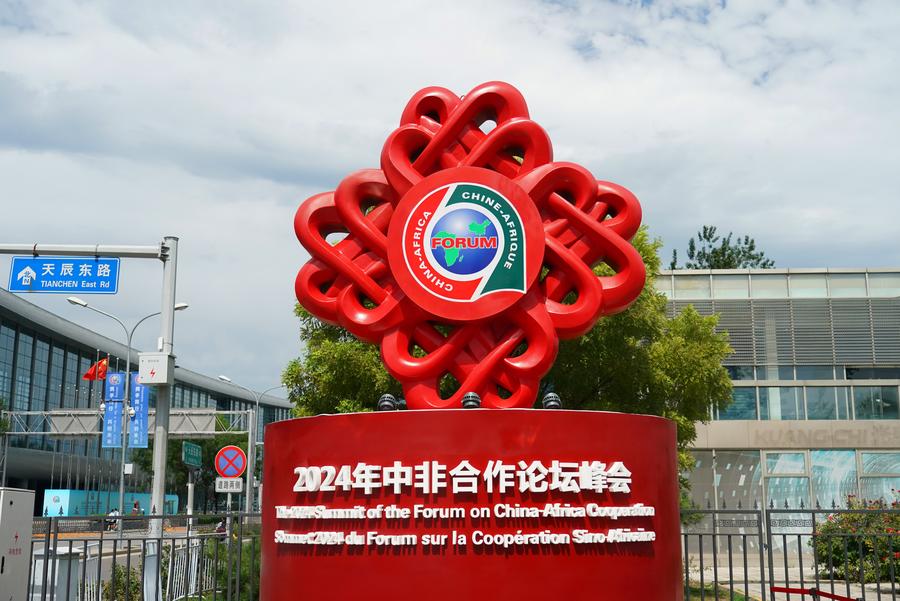Strategy aims to empower continent as a player in multipolar world, says report

As China and Africa embark on the implementation of the outcomes of the 2024 Summit of the Forum on China-Africa Cooperation, a new report by the Africa Policy Institute in Kenya described the China-Africa policy as nuanced, long-term and, ultimately, emancipatory, as evidenced by the Beijing summit outcomes.
This contradicts some Western countries' framing of the outcomes within the narrow context of a rising China in global geopolitics.
The West cast China's development package to Africa — and more broadly, China's policy toward the continent — as part of Beijing's global strategy to "create dependencies and interdependencies" that make developing countries and regions beholden to it, according to the report.
READ MORE: Wang: China to align development initiatives with Nigeria's plan
Dubbed "Forging Synergies: Rolling out China's Deal for Africa's Development", the report, published in Nairobi on Monday, said the policy aims to leverage China's four global initiatives to progressively empower and embolden the continent and Global South politically, economically and diplomatically as a strong ally and a counterweight to the West's global hegemony.
"Ultimately, this will give birth to a just, equitable and genuinely multipolar world," the report said.
The four initiatives are the Global Development Initiative, the Belt and Road Initiative, the Global Security Initiative and the Global Civilization Initiative.
Three trends
The report identifies three trends defining Sino-African cooperation. The first one is the intensification of policy coordination, tapping into the power of diplomatic visits to forge synergies between China and African states across the five regions of Africa: Southern, Central, East, West and North Africa.
This is in addition to a significant shift from heavy infrastructure projects to trade and investments in energy, industrialization, and manufacturing.
The third trend is a sharp focus on inter-civilization exchanges through enhanced tourism, education and think tank cooperation, noting a shift from state-centric engagements to people-to-people diplomacy.
The report said diplomatic visits are aiding China's efforts to expand its development footprint in Africa, focusing on minerals crucial in the generation of clean energy. They are also strengthening bonds between the two civilizations in the areas of think tank cooperation and peace and security, especially in the Sahel, which comprises the semiarid regions of western and north-central Africa — extending from Senegal eastward to Sudan.
ALSO READ: China, Republic of Congo to implement FOCAC outcomes for closer ties
The year 2025 marks the first mile in the rollout of what the report calls, China's "new deal for Africa's development", a concept derived from the 2024 FOCAC summit outcomes that indicates a shift from state-to-state engagement to people-to-people diplomacy.
The new deal will progressively empower and embolden the continent politically, economically and diplomatically as a player in the emerging multipolar world, researchers said.
The researchers, however, called on Africa to prioritize aligning the deal with the Second 10-Year Implementation Plan of Agenda 2063, the ambitious road map for Africa's transformation.
The Agenda 2063 focuses on industrialization and manufacturing to add value to the continent's products and increase its share of global trade by increasing access to global markets, including China.
Africa will need to harmonize its policy toward China, which is currently its largest global partner, they added.
edithmutethya@chinadaily.com.cn


